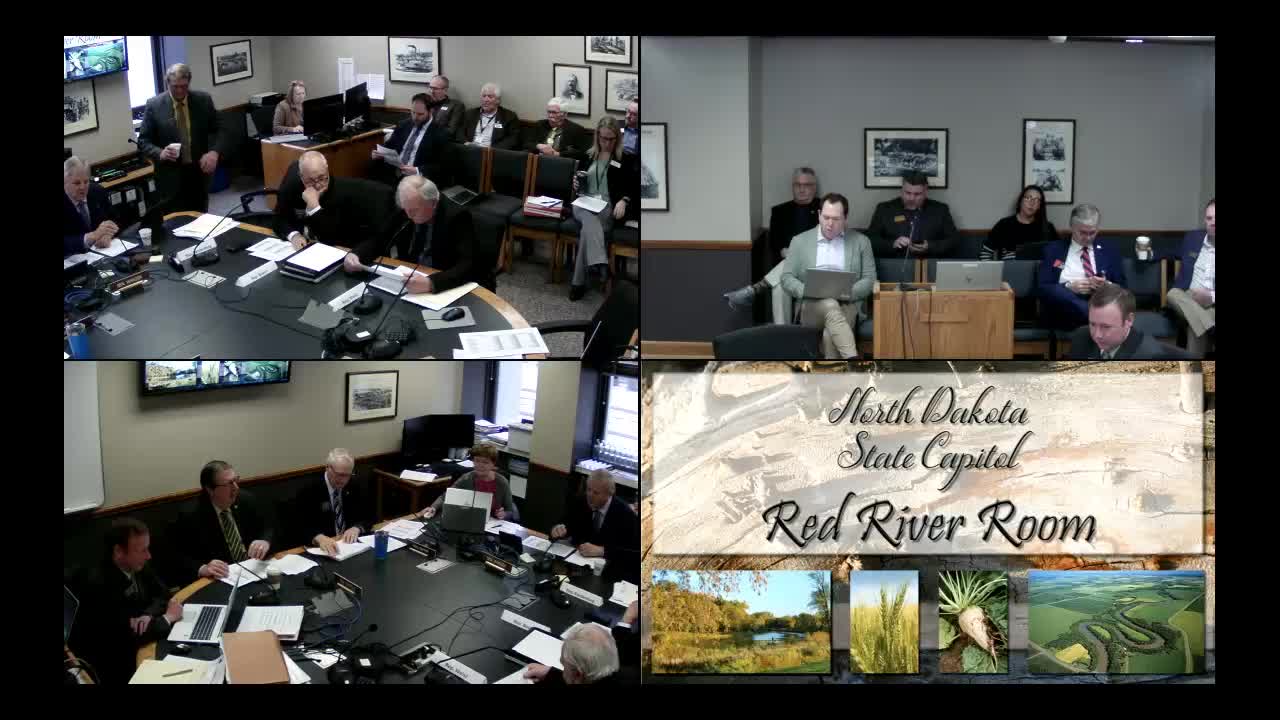Conference committee debates DOT funding plan: legacy earnings, gas-tax increase and Highway 85 bonding
Get AI-powered insights, summaries, and transcripts
Subscribe
Summary
Members of the Legislature's conference committee met to reconcile House and Senate changes to Senate Bill 2012, discussing an 8% POMV base, legacy-earnings allocations to the highway fund, a proposed 5¢ gas-tax increase split among roads and transit, and bonding for Highway 85 match.
The conference committee on Senate Bill 2012 met to reconcile House and Senate versions of the Department of Transportation budget, focusing primarily on how to fund highway projects and local distributions. Representative Weiss, leading the House overview, told the committee the House kept the POMV (percent of market value) at 8% and adjusted legacy-earnings allocations so 25% of that stream would go directly to the DOT highway fund.
The change means an 8% POMV produces about $686 million in legacy earnings under current projections; after an interest-sinking fund deduction of about $102–$103 million, the committee estimated roughly $583 million would remain. Representative Weiss said, "What we did is took the whole thing as a block," and that 25% of the remaining legacy earnings—about $146 million—would be dedicated to the highway fund while the remaining roughly $437 million would be used for property tax relief.
The House plan also adds a proposed 5¢ per-gallon gas-tax increase, estimated to raise $70 million annually. Under the committee's distribution proposal the gas-tax increment would increase the highway distribution pool and be split so the DOT receives roughly 60% of the total distribution, cities and counties 35%, townships 3.4% and transit 1.6%. Representative Weiss said the $70 million would add about $42 million to the DOT’s portion, with smaller increases for counties, cities, townships and transit.
To cover matching obligations for federal grants and a specific Highway 85 project, the committee discussed bonding the full Highway 85 match rather than using all of the allocated SIF (state infrastructure fund) or flex fund dollars. Representative Weiss said bonding the Highway 85 match would free $55 million that otherwise would have gone to DOT match, and the committee also plans to apply $161.3 million in SIF funding from the House side to support DOT matching requirements.
Members debated whether to continue using motor vehicle excise tax proceeds for highways or to return those proceeds to the general fund and replace that revenue with SIF dollars. Senator Eberly noted that motor-vehicle excise is more stable than SIF, while Representative Weiss said the House moved excise revenue to the general fund because of general-fund shortfalls and characterized many transportation expenditures as one-time needs that can be met with SIF.
The committee also discussed consolidating several transportation funding buckets. Under the House approach, funds like the Prairie Dog distributions would be moved into a larger flexible fund and grants program. Representative Brandenburg described a committee that would score grant applications and award flexible funding—about $49 million initially earmarked for bridges—and said DOT would administer those grants with preference points and scoring rules.
Transit funding was discussed as well. Committee members noted two separate transit bills that already passed (two $2 million bills, for fixed-route and non-fixed-route services) and that shifting distribution percentages would provide a modest ongoing increase for transit in the formula.
No formal vote on the reconciled package was recorded during the session excerpted in the transcript. The committee recessed to continue work later in the day.
Discussion vs. decision - Discussion: the merits of moving excise-tax revenue to the general fund vs. keeping it dedicated to transportation; whether to use SIF or bonding for federal-match obligations; distribution formula adjustments; consolidation of Prairie Dog into a flexible grants program. - Direction: committee members indicated intent to bond Highway 85 match and to allocate 25% of legacy earnings to DOT under the House plan; members agreed to continue reconciling details. - Formal action: none recorded in the provided transcript excerpt.
